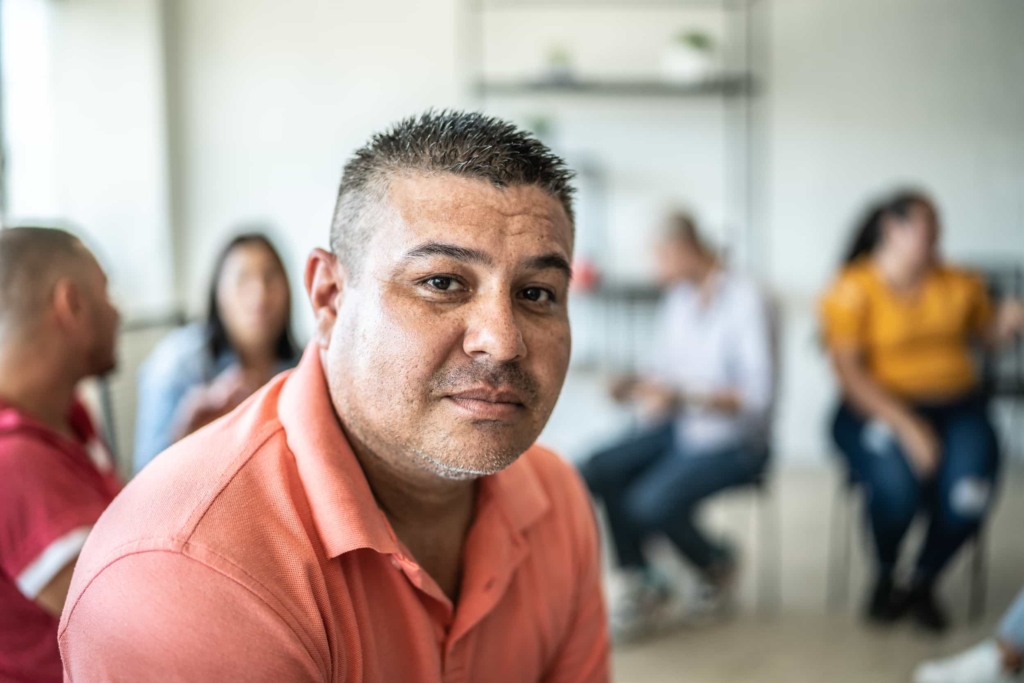
A conversation can save a life
Ask. Listen. Do not remain silent.
How you can help others
Supporting people with suicidal thoughts requires empathy, understanding, and listening. Being able to recognize warning signs and refute preconceptions is an active contribution that helps save lives. Together, we can make a positive difference and help people find hope and forge new paths.
Recognize warning signs
To help, you need to be able to recognize warning signs. Because only in rare cases will someone directly approach you about their suicidal thoughts and abruptly tell you their feelings. But often signals are sent through changes in behavior, mood swings, and a sudden social withdrawal. If you notice this, approach the person and let them know you are interested, care, and want to help.
You can find out what warning signs to look out for in particular by clicking on the button.

Suicidal thoughts are scary:
Talk about them!
Particularly vulnerable groups?
Suicidal thoughts can affect anyone. Whether young or old, whether looking for work or in a permanent job, whether wealthy or living in poverty.
Nevertheless, there are groups of people who are at increased risk. You are probably thinking of people in psychological crises or people who have just experienced a great loss. You’re not wrong about that. But there are also groups of people who fall through the perception cracks more easily. Did you know, for example, that a particularly high number of suicides are committed by men over the age of 50?
You can find out which group is also particularly at risk and affected by clicking on the button.
Prejudices, myths and false information
- People who talk about suicide just want attention!
- If a person wants to take their own life, they will do it anyway.
- You don’t talk about it, otherwise you just give the person ideas.
You probably know these and other myths about people who want to take their own lives.
But what is actually true? We dispel the myths about suicide – hopefully once and for all!
Be there, ask questions, be a listener.
It can be difficult to talk about suicidal thoughts. Take time to listen and understand what the other person is going through. Be sure to ask specifically about suicidal thoughts, plans, and preparations. You can certainly show that this is difficult for you, too. However, avoid judgments.
Suicidal thoughts can make someone feel lonely. Just be there. Be supportive. Be encouraging. Make it clear to the other person that they are not alone and that there is always a way out.
Want to know how exactly to have a conversation like this? Click the button.
Offer help
Offer your help when it comes to searching for offers. Accompany the person to a counselling center or help them find an appointment: for example, at a psychotherapy office.
There are also resources such as crisis hotlines or support groups that you can refer to.
Just signal to the person that you want to be there for them. And don’t forget to take care of yourself, too. We also have resources for those indirectly affected in our help finder.

Information and recommendations for professionals
As a caregiver, such as a teacher, sports coach or nurse, you are in contact with many people – and you have to keep an eye on several people at the same time. It is therefore not easy to notice changes in behaviour or character and then to respond to them appropriately.
But what should you do if you notice emotional changes in a person? When a person suddenly acts differently, withdraws and becomes quieter? How can you start a conversation with someone who may be planning to take their own life?
We would like to give you some tools that we hope will make it easier for you to find the right words. They can help you talk about difficult topics such as stressful life events, feelings or even suicidal thoughts.

Important to know
Are you having acute suicidal thoughts and want to talk to someone about it?
We are there for you. Online and offline, anonymously or in person.




